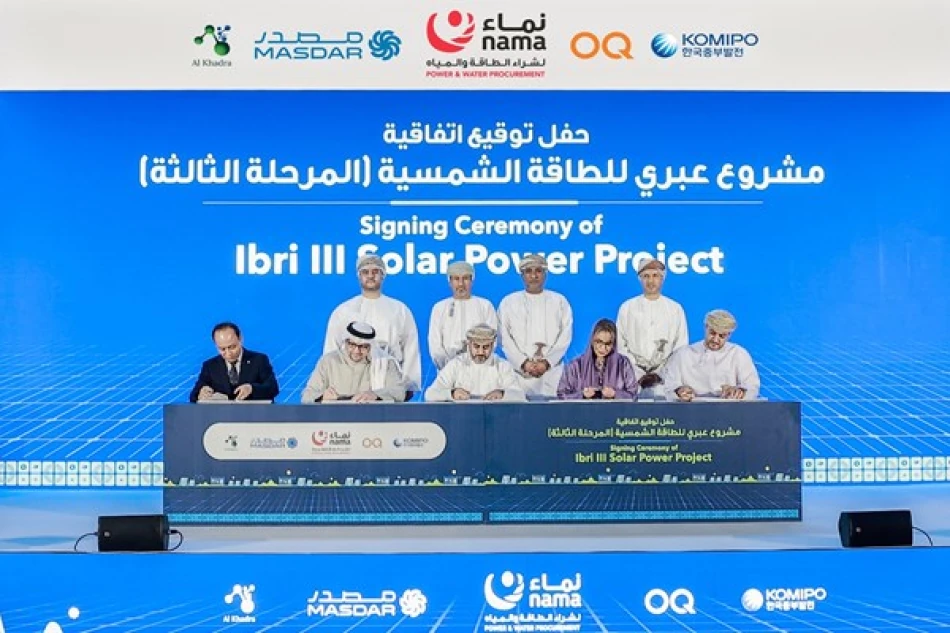
Namma Inks Deal with Source-Led Coalition to Develop Solar Power Plant in Oman
Oman just signed a deal for its first utility-scale solar power plant with battery storage, marking a major step in the country's push toward renewable energy. The project will generate 500 megawatts of solar power and store 100 megawatt-hours in batteries, enough to power 33,000 homes while cutting carbon emissions by 505,000 tons annually.
Nama Power and Water Procurement Company signed the agreement with a consortium led by Abu Dhabi Future Energy Company (Masdar), along with Green Partners, Korea Midland Power, and Oman's OKIO Alternative Energy. The Ibri Solar Phase 3 project will cover nearly 10 million square meters and represents an investment of about 115 million Omani rials ($300 million).
The deal fits into Oman's Vision 2040 plan, which aims to generate 30% of electricity from renewable sources by 2030 and reach net-zero emissions by 2050. Right now, renewable energy makes up a small fraction of Oman's power mix, so this project will add roughly 4% to the country's total electricity production from clean sources.
Energy Minister Salem Al Aufi said the project shows investor confidence in Oman's business environment. The country has been working to diversify its economy away from oil dependence, and renewable energy plays a key role in that strategy. Oman wants to become a regional hub for clean energy, competing with neighbors like the UAE and Saudi Arabia who are also building massive solar projects.
For investors, this signals Oman is serious about its energy transition. Nama has contracted 26 power and water plants over the past 15 years, bringing in $11 billion in foreign investment. The company plans to attract another $5 billion over the next five years, mostly for renewable projects.
The battery storage component makes this project particularly interesting. Most solar plants in the region operate without storage, which limits their usefulness when the sun isn't shining. Adding batteries means the plant can supply power during evening peak demand hours, making solar more valuable to the grid.
Masdar CEO Mohamed Jameel Al Ramahi said the project will create jobs and support Oman's economic development while meeting growing electricity demand. Korea Midland Power brings experience from projects in the US, Europe, and Asia, while local partner OKIO adds regional expertise.
The consortium will handle design, construction, ownership, operation, and maintenance of both the solar plant and battery system. Construction details and timeline weren't announced, but similar projects in the region typically take two to three years to complete.
This project puts Oman in line with regional trends. The Gulf states are racing to build renewable capacity as they prepare for a post-oil economy. Solar costs have dropped dramatically, making it competitive with gas-fired power plants that currently dominate the region's electricity mix.
Most Viewed News

 Layla Al Mansoori
Layla Al Mansoori






